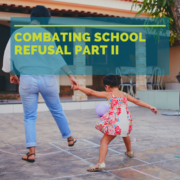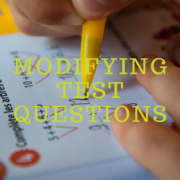Keep Your Cool When Things Are Not
Keeping Your Cool When Things Are Not
The most rewarding aspect of educating young people can be the unpredictability of it all. Ironically, the most daunting aspect of teaching can be the unpredictability of it all. We plan, we practice, we arrange, we redirect, and yet every day in the classroom is a gauntlet of unforeseeable events. All educators will tell you that one of the best parts of the job is being able to work amongst all of the dynamic personalities that students bring to school. However, this can also be the most challenging aspect, as well.
Look at the bigger picture
Behavior management can often be a tall order, especially for novice teachers. Disruptions and disrespect will occur at some point. However, even the most difficult students have a reason for their behaviors. We may be unaware of the catalyst, but something certainly causes the waves of negative behavior that we encounter in the classroom.
Students arrive at school with a myriad of different emotions brewing. It is not always obvious how our students are feeling—or why. Teachers may not be privy to the happenings at home or the drama among peers. It is easier said than done, but teachers must try to remember that the student is not defined by his or her behavior—this behavior is coming from a specific place.
Use a behavior mishap as a teachable moment
When students misbehave, it is a typical instinct to reprimand or place blame. The truth is, behaviors stem from somewhere. Before rushing to judgments, consider a few things—What did the student do? What motivated him or her to act out? Was this an intentional action? Has he or she done this before? These questions can even be asked during a worthwhile conversation between teacher and student. When speaking with a student about behavior modification:
- Speak directly, clearly, and objectively about how the behavior disrupted the classroom environment
- Explain that he or she took learning time from classmates
- Remind the student of the classroom expectations
- Ask why he or she decided to disregard the expectation
- Ask how he or she should have reacted in that moment
- Show that you understand the student’s feelings or frustrations
- Provide a reasonably proportionate consequence
A firm but calm response is the best approach to defuse a frustrating behavior moment. Again, this is easier said than done, but adding fuel to the fire by reacting is never a good strategy. Teachers will undoubtedly find themselves struggling to maintain their cool. Sure, it is human nature to react when provoked—but remember, something likely provoked the student’s behavior, too.
With that in mind, when the wheels fall off, remember this mantra: keep calm and teach on!











